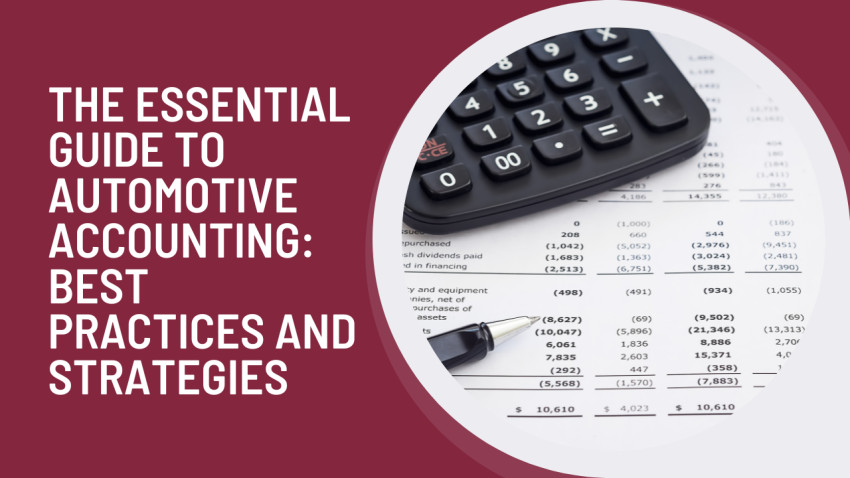
Introduction
Welcome to "The Essential Guide to Automotive Accounting: Best Practices and Strategies". In this guide, we will explore the crucial aspects of automotive accounting, providing you with expert tips, actionable strategies, and practical insights to streamline your financial operations. Whether you are an automotive dealership, service center, or parts supplier, effective accounting practices are vital to sustain profitability in the competitive automotive industry. Let's dive in!
Understanding Automotive Accounting: An Overview
To set the stage, let's understand the basics of automotive accounting. Automotive accounting involves managing the financial transactions, record-keeping, and analysis specific to the automotive industry. It goes beyond general accounting practices and requires a tailored approach to address the unique challenges faced by automotive businesses.
Best Practices for Automotive Accounting
Now that we have laid the groundwork, let's delve into the best practices and strategies for successful automotive accounting. Implementing these practices will help you optimize your financial operations, ensure compliance, and make informed business decisions.
1. Implementing Advanced Accounting Software
In today's digital age, traditional manual accounting processes can be time-consuming and error-prone. By implementing advanced accounting software tailored to the automotive industry, you can streamline various tasks such as inventory management, payroll, and financial reporting. Look for software that integrates with your existing systems and offers features like automated data entry, customizable reporting, and real-time visibility into your financial health.
2. Establishing Clear Financial Policies and Procedures
Clear and well-documented financial policies and procedures are the backbone of effective automotive accounting. Establishing guidelines for expense management, payroll, accounts payable and receivable, and financial reporting will ensure consistency and accuracy across your organization. Communicate these policies to your team and regularly review and update them to adapt to changing industry regulations.
3. Monitoring Key Performance Indicators (KPIs)
Tracking key performance indicators (KPIs) is crucial for evaluating your financial health and identifying areas for improvement. Examples of automotive-specific KPIs include gross profit per vehicle sold, service department annual sales per technician, and parts department inventory turnover rate. Regularly monitor these KPIs, compare them to industry benchmarks, and use the insights to make data-driven decisions that boost profitability.
4. Efficient Inventory Management
Inventory management is a critical aspect of automotive accounting, as it directly impacts cash flow and profit margins. Implementing best practices such as just-in-time inventory, real-time tracking, and proactive forecasting will help you minimize carrying costs, reduce stockouts, and optimize cash flow. Leverage technology solutions that provide accurate inventory visibility and automate stock replenishment processes.
Common FAQs about Automotive Accounting
Q1. Why is automotive accounting different from general accounting?
Automotive accounting requires specialized knowledge due to the industry's unique revenue recognition rules, inventory management challenges, and financial reporting requirements.
Q2. Can I outsource my automotive accounting operations?
Yes, outsourcing accounting functions can free up your internal resources, ensure compliance, and provide professional expertise. Just ensure you choose a reputable service provider with experience in the automotive sector.
Q3. How can I ensure compliance with tax regulations specific to the automotive industry?
Staying compliant with tax regulations is essential. Consult with a knowledgeable tax advisor specializing in the automotive sector to ensure you meet all obligations and take advantage of available tax incentives.
Conclusion
In this comprehensive guide, we explored the essential best practices and strategies for effective automotive accounting. By implementing advanced accounting software, establishing clear financial policies, monitoring KPIs, and optimizing inventory management, your automotive business can achieve financial efficiency and profitability. Remember to stay updated with the latest industry regulations and seek professional guidance whenever needed. With the right financial practices in place, you can drive your automotive business toward long-term success in a competitive market.



